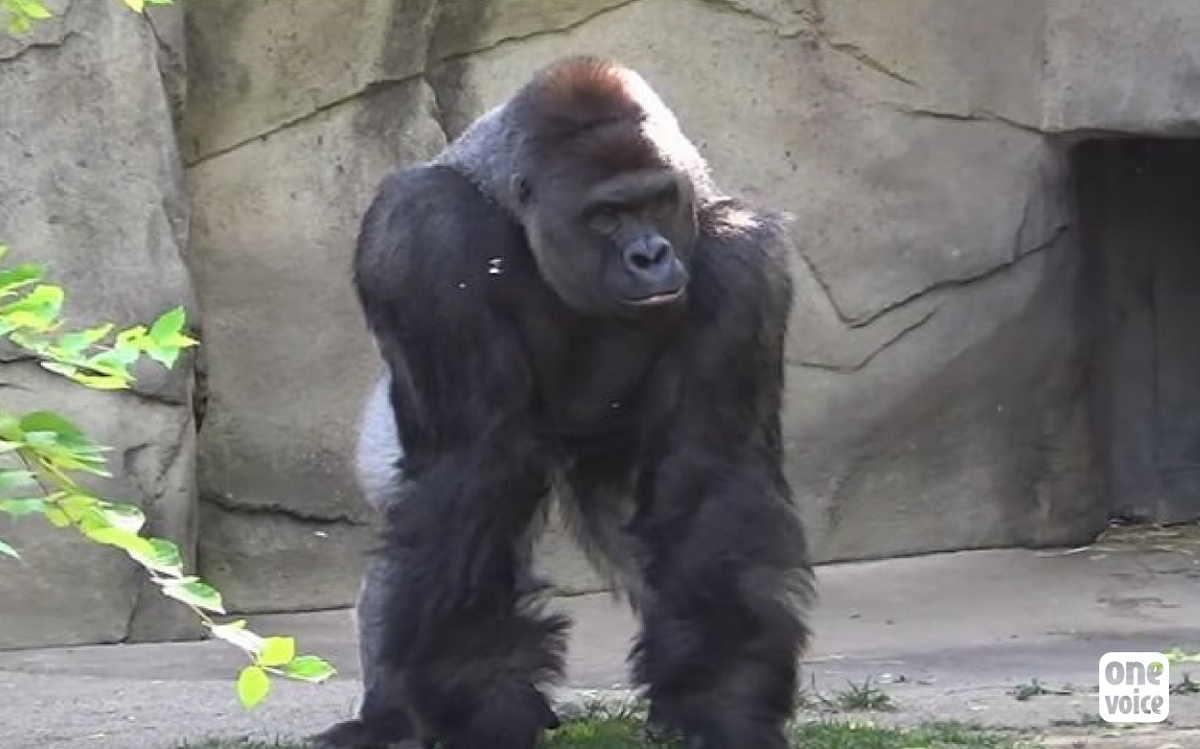
The gorilla and the child
When Harambe saw the young boy fall down into his enclosure at the Cincinnati zoo, he went straight to him. A human child or a gorilla child, to Harambe, it’s pretty much the same thing, they look so similar! The young gorilla was not yet a father himself but he showed the same concern for the little human as he would have for one of his own. He checked that the child was still alive and then shaded him with his strong body.
When Harambe saw the young boy fall down into his enclosure at the Cincinnati zoo, he went straight to him. A human child or a gorilla child, to Harambe, it’s pretty much the same thing, they look so similar! The young gorilla was not yet a father himself but he showed the same concern for the little human as he would have for one of his own. He checked that the child was still alive and then shaded him with his strong body.
This is when the cries started, screams of “Oh my God!”, as people assembled on the guardrails in an eruption of mass hysteria, looking down at the pair and throwing objects.
The gorilla, surprised, dragged the child a bit further away using the strength that he possesses. They then stopped again near the fountain. The gorilla took the boys hand. He stood him up, pulled up his pants and adjusted his t-shirt. The gorilla looked into the boys eyes for a long time. Then without warning, in one shot, a bullet exploded his skull. The beautiful Harambe was dead at the age of 17, the day after his birthday.
We could have distracted Harambe with treats, or distanced him with a jet of water. We could have evacuated the excited public, calmed the big primate, spoken gently to him. In the days following this sad event, Franz De Waal and other primate behaviour specialists have reiterated: at no point did Harambe show the slightest sign of aggression, he just showed concern regarding the public’s reaction.
But it was just a monkey after all; whose life has never had the same value as that of a human. Rather than taking the slightest risk, we prefer to fix the problem with arms.
For the Ohio zoo, who had acquired the male in 2015 from Gladys Porter Zoo, Harambe was just an incubator of precious genes. The crazy eugenic logic of the reproduction programmes values the species more than the individual. So, the sperm was quickly taken from his body to be refrigerated and injected one day into a specially chosen female. Births at the zoo are also very lucrative.
Yet however many gorillas from the western plains are battery farmed, this will never save the species itself. None of these big primates born amongst humans would be capable of returning to their ancestral home and surviving. Gorillas are cultural beings possessing intelligence, gentle vegetarian people who have evolved in the primal forests over thousands of years. They pass down their knowledge from generation to generation; humans are not capable of teaching them this.
The real importance is not to multiply them in order meet industry and leisure requirement for little groups of show gorillas, that families can visit for a fee whilst eating popcorn. The real emergency is to save the large primates habitat as quickly as possible, whilst we still can, investing the resources required to act seriously in areas such as the Dzanga Sangha reserve or the Virunga mountains. Without the forest, the gorillas are no longer gorillas, but are monsters in a fair, pathetic phoney King Kongs on display for the crowd who tremble from a safe distance.
Harambe was not King Kong. He was just a young prisoner born in captivity into a confined world where he had absolutely nothing to do, both literally and figuratively. What has come from this tragedy? A pointless debate about parental responsibility, a great sadness amongst the gorillas at Gorilla World, but not yet, sadly, a radical review into the real reason that Harambe was killed: the zoos. It’s one
zoo that brought him into the world, another that killed him, demonstrating the same level of concern for production that is given to the poor battery chickens.
Rest in peace, Harambe. We will do our very best to ensure that in France and in the rest of the world, that one day an event such as this will never be repeated.